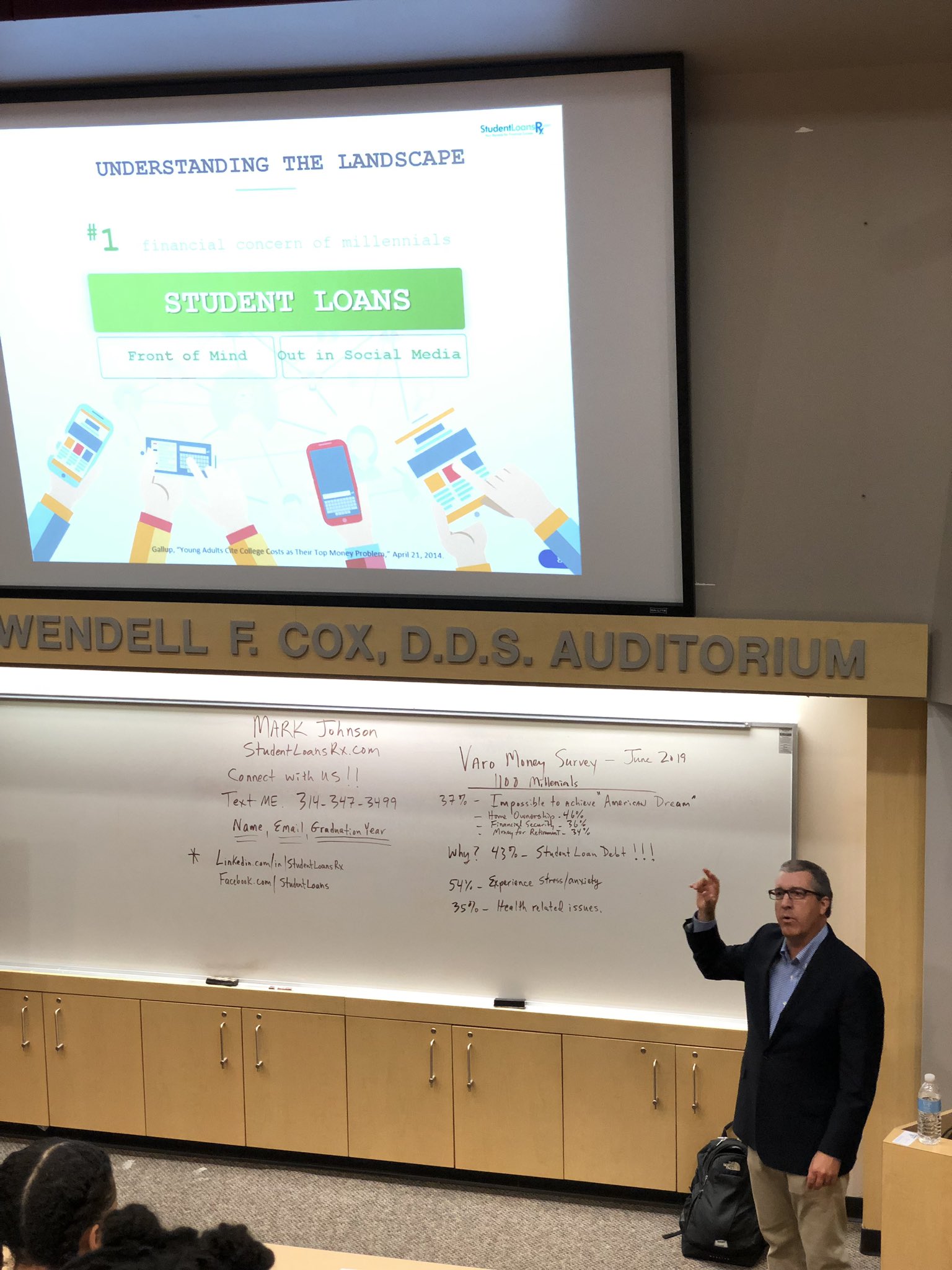Millennials Paying off Student Debt: Smart Strategies
Millennials are employing a variety of strategies to tackle student debt. Budgeting, refinancing, and side hustles are common tactics for loan repayment.
Facing an unprecedented amount of student debt, millennials are adopting innovative and disciplined approaches to achieve financial freedom. This generation, burdened with loans, recognizes the importance of education for career advancement but often struggles to balance loan repayments with other financial goals.
As a result, many are delaying major life events such as home ownership or starting a family. To combat this, they are exploring refinancing options to reduce interest rates, creating strict budgets to manage their finances, and turning to gig economy jobs to generate extra income. Budgeting apps and financial advisors have become increasingly popular among this demographic as they seek guidance to navigate their financial challenges. By prioritizing their student debt, millennials are taking proactive steps to secure their financial future, demonstrating resilience and adaptability in the face of economic pressure.

Credit: twitter.com
Millennial Debt Crisis
The Millennial generation faces a unique economic challenge. Bold phrases like skyrocketing education costs and burdensome loan repayments dominate their financial realities. This financial strain has widespread implications. It influences career choices, delays milestones such as home ownership, and adds stress to daily life.
Rising Costs Of Education
The price tag on a college degree has soared over the last few decades. Tuition fees, textbooks, and living expenses pile up quickly. Millennials find themselves needing more loans to cover these costs. Grants and scholarships can help. Yet, they often don’t fill the financial gap. This leads to a heavy reliance on student loans.
Statistics Of Student Debt
Data paints a grim picture of the Millennial debt landscape. Let’s look at some key statistics:
| Statistic | Value |
|---|---|
| Average Student Loan Debt | $30,000 |
| Percentage with Student Debt | Over 70% |
| Impact on Retirement Savings | Delayed for many |
Over 70% of Millennials carry student debt. The average outstanding balance hovers around $30,000. This burden often results in Millennials delaying their retirement savings. Some even push aside dreams of owning a home. They prioritize their finite financial resources towards paying down their loans.
- Debt Affects Homeownership: High debt-to-income ratios prevent loan approvals.
- Lifestyle Changes: Budgets tighten, and discretionary spending drops.
- Mental Health Impacts: Constant pressure of debt contributes to anxiety and depression.
The debt crisis is not only about money. It touches every aspect of a Millennial’s life, from mental well-being to future planning. Despite these obstacles, many are finding innovative ways to tackle their debt, such as side hustles and freelancing. They remain hopeful, resilient, and committed to achieving financial freedom.
Budgeting For Success
Making smart money choices is key to paying off student loans. Start by tackling your budget. With a good plan, millennials can conquer student debt faster. Below are strategies to create a budget that works.
Analyzing Income And Expenses
Understanding your cash flow is the first step. List all income sources. Include your main job and any side hustles. Next, track every expense. Look at bills, food, and fun. Use this info to spot where you can cut back. Save more, pay debt fast.
| Category | Monthly Income | Monthly Expenses |
|---|---|---|
| Job | $X,XXX | – |
| Side Hustle | $XXX | – |
| Rent/Mortgage | – | $X,XXX |
| Groceries | – | $XXX |
| Utilities | – | $XX |
| Entertainment | – | $XX |
Essential Budgeting Tools
Select tools that simplify tracking your budget. Many apps and software can help. They visualize data for better financial decisions. Consider these options:
- Apps: Look for ones with good reviews and security.
- Spreadsheets: Make custom budget sheets in Excel or Google Sheets.
- Envelope System: Use cash and envelopes for different budget categories.
Debt Repayment Plans
Millennials face a unique financial challenge: paying off student debt. Creating a smart repayment plan is essential.
Standard Vs. Income-driven Repayment
Many millennials must choose a repayment plan. Each plan has different rules.
| Standard Repayment | Income-Driven Repayment |
|---|---|
| Fixed payments for 10 years | Payments adjust with your income |
| Pay off faster, save on interest | May forgive balance after 20-25 years |
| Good for steady income | Helps in times of low earnings |
Pros And Cons Of Refinancing
Refinancing student loans can lower interest rates. This might save money, but consider the trade-offs.
- Pros:
- Lower monthly payments
- Potentially lower interest rates
- Single monthly payment for multiple loans
- Cons:
- Lose federal loan benefits
- No income-driven repayment options
- Qualifying can be hard with lower credit
Side Hustles And Earning Extra Income
Millennials are getting creative to tackle their student debt. Facing high loan balances, many turn to side hustles for extra cash. This doesn’t just mean more work; it’s smart strategy for financial freedom. Side jobs are more than just a trend—they’re a lifeline.
Popular Side Jobs For Millennials
Balancing a full-time job with extra gigs can be tough. But many millennials manage to do it. They find flexible roles that fit around their schedule. Let’s explore some crowd-favorites:
- Ride-sharing driver: Quick cash, you set the hours
- Freelance work: Writing, design, or coding from home
- Tutoring: Share expertise virtually or in-person
- Dog walking: For animal lovers with some spare time
- Selling handmade goods: Monetize your craft skills online
Turning Hobbies Into Revenue Streams
Your hobby could be more than just a pastime. It might bring in real money. Love to knit? Sell your creations. A baking aficionado? Market those cupcakes. Your passion can complement your income. See how hobbies can turn profitable:
| Hobby | Platform | Tips for Success |
|---|---|---|
| Photography | Etsy, Stock Photo Sites | Build a strong portfolio |
| Graphic Design | Fiverr, Upwork | Set competitive rates |
| Writing | Medium, Freelance Websites | Create valuable content |
| Music Lessons | Local Ads, Online Teaching | Use social media for promotion |
Long-term Financial Health
Embarking on the journey of paying off student debt is a formidable challenge for many Millennials. The pursuit isn’t just about clearing the debt; it aims to establish a solid financial foundation for the future. Achieving long-term financial health involves strategic planning that balances immediate obligations with long-range financial goals.
Balancing Debt Payment And Savings
Finding harmony between reducing debt and building savings is critical. Crafting a budget that prioritizes high-interest debts while allocating funds to an emergency savings account is essential.
- Create a budget: Track expenses and adjust spending.
- Emergency fund: Aim for three to six months of expenses.
- Automate savings: Prevent missed opportunities to save.
Consistent savings behavior ensures you’re not left vulnerable in times of unexpected financial strains. Even small monthly contributions can yield significant results over time.
Investment Strategies For Millennials
Investing can be an effective way to grow wealth and combat the erosive effects of inflation on saving accounts. Engaging in diversified investments can help Millennials build wealth while still paying off student debt.
| Strategy | Brief | Benefit |
|---|---|---|
| Roth IRA | Post-tax retirement savings | Tax-free growth |
| 401(k) match | Employer-sponsored plan | Free money through matching |
| Index funds | Low-cost, diversified stocks | Reduces risk through variety |
Starting with small investments can lead to significant wealth accumulation over the years. Prioritizing these strategies helps to not only manage debt but also to ensure a healthier financial future. Millennials should consult financial advisors to fine-tune their investment approach according to personal goals and risk tolerance.

Credit: www.bankrate.com
Government Assistance And Forgiveness Programs
Many Millennials face the challenge of student debt. But, good news awaits those struggling with loan repayments. Government assistance and forgiveness programs can ease the burden. Understanding and accessing these benefits could mean waving goodbye to some or all of that financial weight.
Eligibility For Federal Programs
Not all student loans qualify for federal forgiveness programs. To benefit, Millennials must meet specific criteria. The programs often consider the type of employment, loan type, and repayment plan.
Federal student loan borrowers may be eligible for plans like:
- Public Service Loan Forgiveness (PSLF): For government or nonprofit workers
- Teacher Loan Forgiveness: Available to teachers working in low-income schools
- Income-Driven Repayment Plans: Payments based on income and family size
Program requirements can change. Stay updated with the latest information from official sources.
Navigating Paperwork And Bureaucracy
Paperwork for these programs can scare many. Attention to detail is crucial. Missing a form or deadline can delay forgiveness. Online resources and loan servicers provide guides and tips on the application process.
To navigate the system effectively:
- Gather documents: Have all your loan details ready.
- Follow guidelines: Each program’s website provides specific instructions.
- Submit on time: Be mindful of deadlines to avoid missing out.
For complex situations, consider consulting a financial advisor who specializes in student loans.

Credit: medium.com
Frequently Asked Questions For Millennials Paying Off Student Debt
How Can Millennials Quickly Pay Off Student Loans?
Paying off student loans quickly requires a plan. Start by budgeting and setting aside extra funds. Consider additional income sources. Make more than the minimum payment each month. Refinance for better rates if credit allows. Avoid new debt to maintain focus on loan repayment.
What Student Debt Forgiveness Options Are Available?
There are several forgiveness programs available, particularly for federal loans. Public Service Loan Forgiveness (PSLF) is popular among public sector workers. Income-Driven Repayment (IDR) plans may forgive remaining debt after 20-25 years of qualifying payments. Always check eligibility for these programs and apply accordingly.
Are Student Loans Impacting Millennials’ Retirement Savings?
Student loans can significantly impact retirement savings. High monthly payments may limit the amount millennials can contribute to retirement accounts. Prioritizing debt repayment often leads to a delay in starting or increasing retirement savings, potentially affecting long-term financial health and retirement timing.
Can Consolidating Student Loans Lower Payments?
Consolidating student loans can lower monthly payments by extending the loan term. However, this may result in paying more interest over time. It’s essential to assess the long-term cost against the benefit of immediate lower payments. Federal loan consolidation does not reduce the interest rate.
Conclusion
Paying off student debt is a defining challenge for many millennials. Yet, with strategic planning and available resources, it’s a goal within reach. Embrace budgeting, seek repayment assistance, and consider extra income avenues. Remember, every small step can lead to financial freedom and a brighter future.
Start now—your journey is worth every effort.







